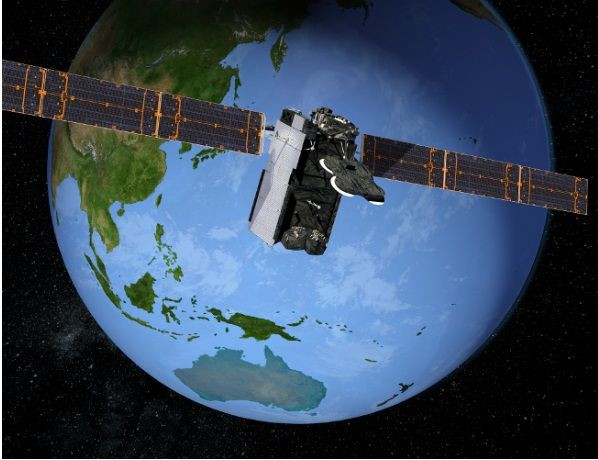Blockstream Offers Satellite Bitcoin Network Broadcasting From Space

The San Francisco-based blockchain technology company Blockstream now offers a free satellite service so anyone worldwide can connect to the bitcoin network even without Wi-Fi.
This isn’t the first time someone proposed launching a bitcoin network satellite into space. Bitcoin core developer Jeff Garzik announced a similar plan in 2014, then reportedly went silent after the project fizzled. This precedent might be why Blockstream took the opposite approach, quietly working on the satellite project for over a year and making sure the network was already live before issuing public statements.
On Monday, Blockstream Chief Strategy Officer Samson Mow hinted at it the startup’s ambition on Twitter, saying Blockstream will do for bitcoin what Elon Musk’s SpaceX did for space travel.
There are already three commercial satellites running Blockstream’s bitcoin service, available across two-thirds of the world’s landmass. Chris Cook, Blockstream’s head of satellite, told International Business Times they expect to add several satellites throughout the year and soon reach truly global coverage.
Bitcoin works on a decentralized network, which requires a reliable, high-speed internet connection for real community engagement. Sure, there are people who already manage to use bitcoin in rural areas with less connectivity. But factors like bandwidth and data storage create some price barriers.
“The cost to participate in bitcoin may be low by Western standards, but there is a discrepancy,” Blockstream CEO Adam Back told IBT. “There are people who are using maybe feature phones with GPS data and so for them, global internet access is quite expensive. To receive a blockchain is gigabytes per month, they can’t afford that.”
Blockstream will also offer enterprise satellite support for other blockchain networks -- for a price.
Meanwhile, the free bitcoin service further entrenches the company as a major influencer in the lucrative bitcoin ecosystem. “You use a satellite dish, it could be an existing satellite dish that you recycle from TV,” Back said. “Less than $100 worth of equipment. We’ve done a lot of optimization to reduce the equipment costs budget using software-defined radio.”
From areas of the world like the Gaza Strip, which routinely experience severe power cuts but generally have internet infrastructure, to remote villages that aren’t on a power grid at all, this satellite network allows almost anyone with a power generator and a basic satellite dish to use bitcoin. With the help of a wifi repeater, one dish could provide bitcoin connectivity to every mobile phone in a village and operate as a local node.
“There’s no recurring cost for the bitcoin transaction data to be received,” Back said. “Just the upfront costs...they [bitcoin transactions] can be sent via a number of low cost methods including SMS.” More geographically diverse nodes and hubs would boost bitcoin's underlying concept of decentralization.
Even wealthier bitcoin aficionados in well-connected urban areas can benefit from a satellite-powered connection to bitcoin. It pretty much offers free bandwidth for bitcoin activity. Plus, it enhances the blockchain network’s privacy and security features.
“You can receive blocks and no one knows your receiving them because it’s a broadcast. Everyone receives the blocks at once,” Back added. “It’s only really the transactions that leave a footprint.”
Down the line, there will be more options for wallet developers to use the API in exchange for a small bitcoin fee. All things considered, this satellite network is the first application development platform of its kind. “I hope that it will have a positive global impact in terms of inclusiveness and access to bitcoin” Back said. “Which I think will overall, help bitcoin on its trajectory to more global adoption.”
© Copyright IBTimes 2024. All rights reserved.





















